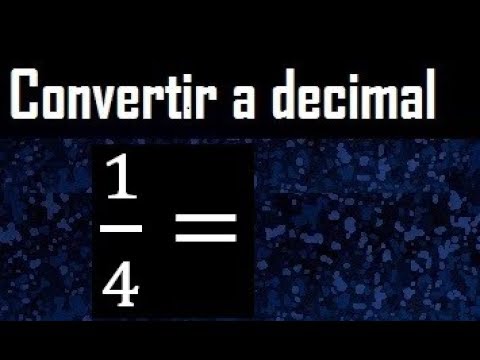Calculating the decimal value of a fraction can be a useful skill in various mathematical applications. In this article, we will explore how to calculate the decimal value of the fraction 1/4 through a step-by-step approach.
Understanding Fraction to Decimal Conversion
When working with fractions, it’s essential to understand how to convert them into decimal numbers. This conversion allows us to represent fractions in a format that is easily comparable and applicable in various calculations.
Step 1: Express the Fraction
To begin, we start by expressing the fraction 1/4 in division form. This means dividing the numerator (1) by the denominator (4) to get the decimal representation.
Step 2: Perform the Division
Next, we perform the division: 1 divided by 4. This yields the decimal representation of the fraction, which can be expressed to a certain number of decimal places.
Step 3: Consider the Result
After performing the division, we obtain the decimal value of 0.25. This is the equivalent decimal representation of the fraction 1/4.
Understanding the Result
By following the steps outlined above, we have successfully calculated the decimal value of 1/4. This result can be valuable in various mathematical and real-world scenarios.
Applications of Fraction to Decimal Conversion
The ability to convert fractions to decimals is widely utilized in fields such as engineering, science, finance, and everyday calculations. Understanding this process enables individuals to work with fractional values in a format that aligns with decimal-based systems.
Conclusion
Calculating the decimal value of a fraction, such as 1/4, is an essential skill that enhances mathematical proficiency and facilitates practical applications. By following the step-by-step process outlined in this article, individuals can confidently convert fractions to their decimal equivalents, expanding their problem-solving capabilities and mathematical prowess.

